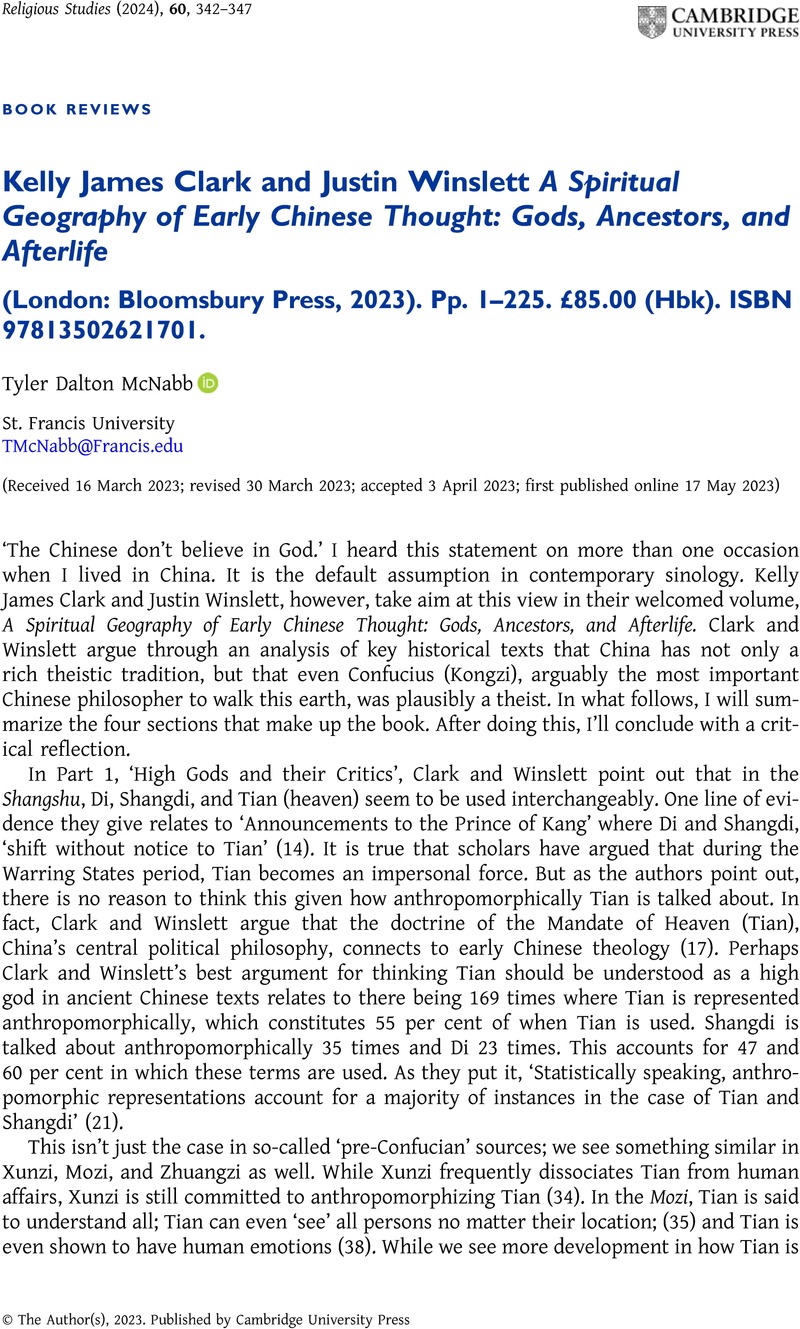No CrossRef data available.
Article contents
Kelly James Clark and Justin Winslett A Spiritual Geography of Early Chinese Thought: Gods, Ancestors, and Afterlife (London: Bloomsbury Press, 2023). Pp. 1–225. £85.00 (Hbk). ISBN 97813502621701.
Review products
Kelly James Clark and Justin Winslett A Spiritual Geography of Early Chinese Thought: Gods, Ancestors, and Afterlife (London: Bloomsbury Press, 2023). Pp. 1–225. £85.00 (Hbk). ISBN 97813502621701.
Published online by Cambridge University Press: 17 May 2023
Abstract
An abstract is not available for this content so a preview has been provided. Please use the Get access link above for information on how to access this content.

- Type
- Book Review
- Information
- Copyright
- Copyright © The Author(s), 2023. Published by Cambridge University Press



